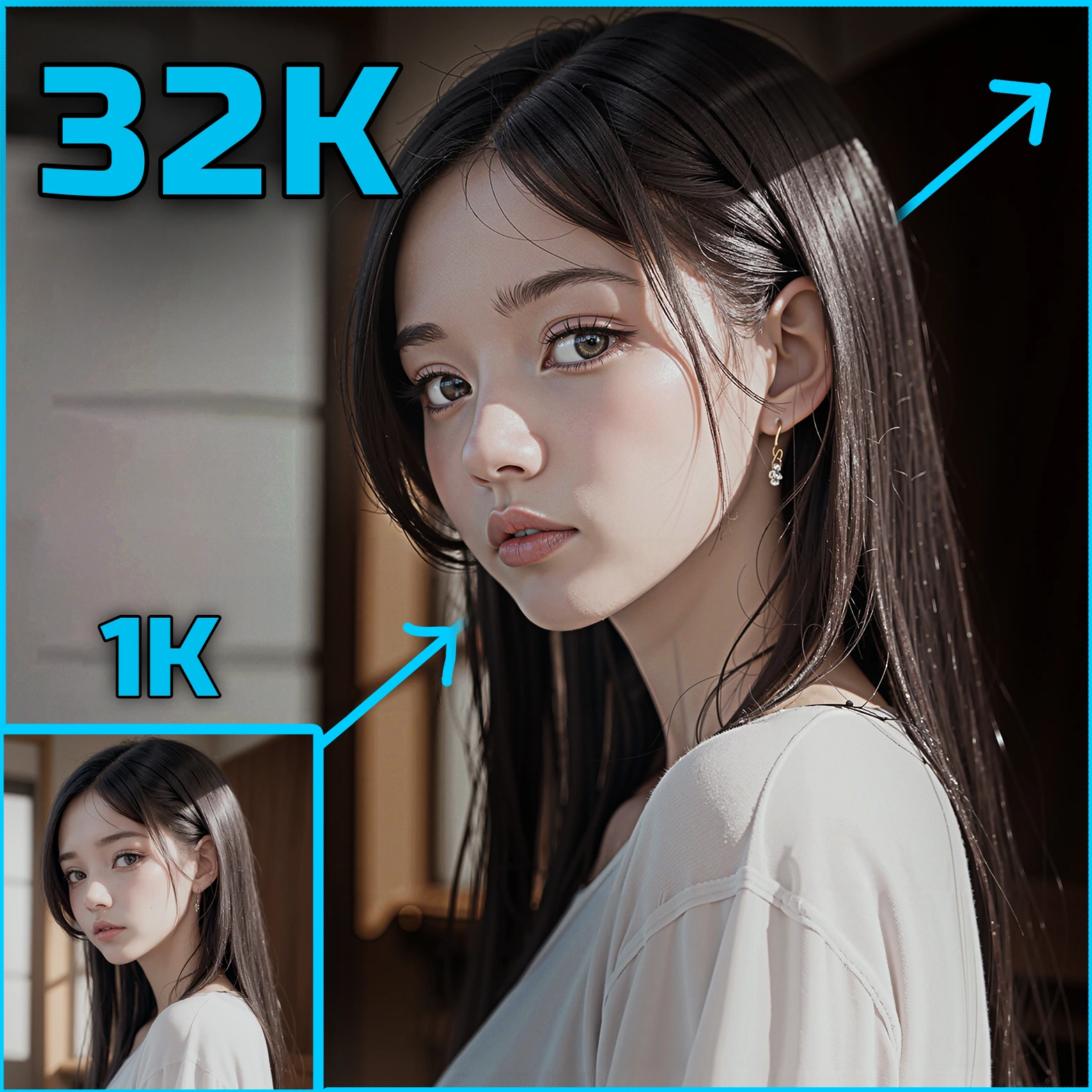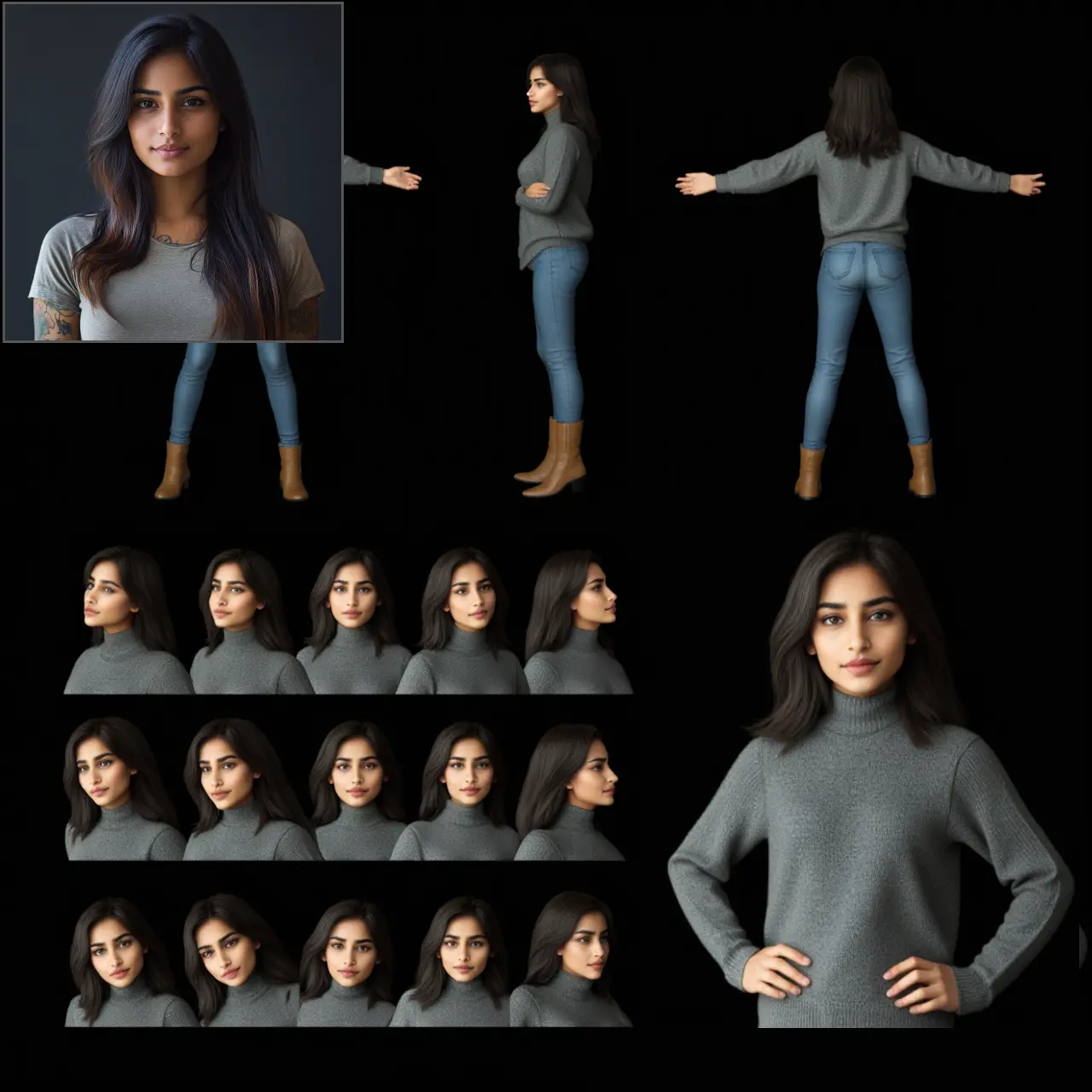ComfyUI Node: Load Model
Ruyi_LoadModel
CategoryRuyi
IamCreateAI (Account age: 117days) Extension
ComfyUI-Ruyi Latest Updated
2025-01-20 Github Stars
0.51K
How to Install ComfyUI-Ruyi
Install this extension via the ComfyUI Manager by searching for ComfyUI-Ruyi- 1. Click the Manager button in the main menu
- 2. Select Custom Nodes Manager button
- 3. Enter ComfyUI-Ruyi in the search bar
Visit ComfyUI Online for ready-to-use ComfyUI environment
- Free trial available
- 16GB VRAM to 80GB VRAM GPU machines
- 400+ preloaded models/nodes
- Freedom to upload custom models/nodes
- 200+ ready-to-run workflows
- 100% private workspace with up to 200GB storage
- Dedicated Support
Load Model Description
Facilitates AI model loading and management in Ruyi framework, automating tasks for streamlined workflow.
Load Model:
The Ruyi_LoadModel node is designed to facilitate the loading and management of AI models within the Ruyi framework. Its primary purpose is to streamline the process of accessing and utilizing models by automating tasks such as downloading, updating, and configuring model settings. This node is particularly beneficial for AI artists who need to work with various models without delving into the technical complexities of model management. By handling aspects like quantization modes and data types, Ruyi_LoadModel ensures that models are optimized for performance and compatibility with different hardware setups. The node's ability to automatically check for updates and download models as needed further enhances its utility, making it a crucial component for maintaining an efficient and up-to-date AI art workflow.
Load Model Input Parameters:
model
The model parameter specifies the name of the model you wish to load. It is crucial as it determines which model will be accessed and utilized by the node. The model name should correspond to a valid model available in the Ruyi framework's repository.
auto_download
The auto_download parameter is a toggle that determines whether the node should automatically download the model if it is not already present locally. Setting this to "yes" ensures that the model is fetched from the repository, which is useful for ensuring you have the latest version without manual intervention.
auto_update
The auto_update parameter controls whether the node should check for and apply updates to the model automatically. When set to "yes," it ensures that the model is always up-to-date, which can be critical for leveraging the latest improvements and features.
fp8_quant_mode
The fp8_quant_mode parameter specifies the quantization mode for the model, with options such as 'none' indicating no quantization. This setting can impact the model's performance and memory usage, making it an important consideration for optimizing resource allocation.
fp8_data_type
The fp8_data_type parameter defines the data type used for FP8 quantization, with 'auto' as a default option. This parameter helps in determining the precision and performance characteristics of the model, especially when working with hardware that supports different data types.
Load Model Output Parameters:
pipeline
The pipeline output represents the initialized model pipeline, which is ready for use in processing tasks. It is a critical component as it encapsulates the model's functionality and configuration, allowing you to perform inference or other operations seamlessly.
dtype
The dtype output indicates the data type used by the model, which is essential for understanding the precision and performance characteristics of the model during execution.
model_path
The model_path output provides the file path to the loaded model, which is useful for reference or for performing additional operations that require direct access to the model files.
model_type
The model_type output specifies the type of model that has been loaded, offering insights into the model's architecture and capabilities.
Load Model Usage Tips:
- Ensure that
auto_downloadandauto_updateare set to "yes" if you want to maintain the latest model versions without manual checks. - Consider the
fp8_quant_modeandfp8_data_typesettings carefully based on your hardware capabilities to optimize performance and resource usage.
Load Model Common Errors and Solutions:
Model not found
- Explanation: This error occurs when the specified model name does not exist in the repository or locally.
- Solution: Verify the model name for typos and ensure it is available in the Ruyi framework's repository.
Download failed
- Explanation: This error indicates a failure in downloading the model, possibly due to network issues or incorrect repository settings.
- Solution: Check your internet connection and ensure the repository settings are correct. Retry the download after resolving any connectivity issues.
Quantization mode not supported
- Explanation: This error arises when an unsupported quantization mode is specified.
- Solution: Review the available quantization modes and select a supported option that matches your hardware capabilities.
Load Model Related Nodes
RunComfy is the premier ComfyUI platform, offering ComfyUI online environment and services, along with ComfyUI workflows featuring stunning visuals. RunComfy also provides AI Playground, enabling artists to harness the latest AI tools to create incredible art.



